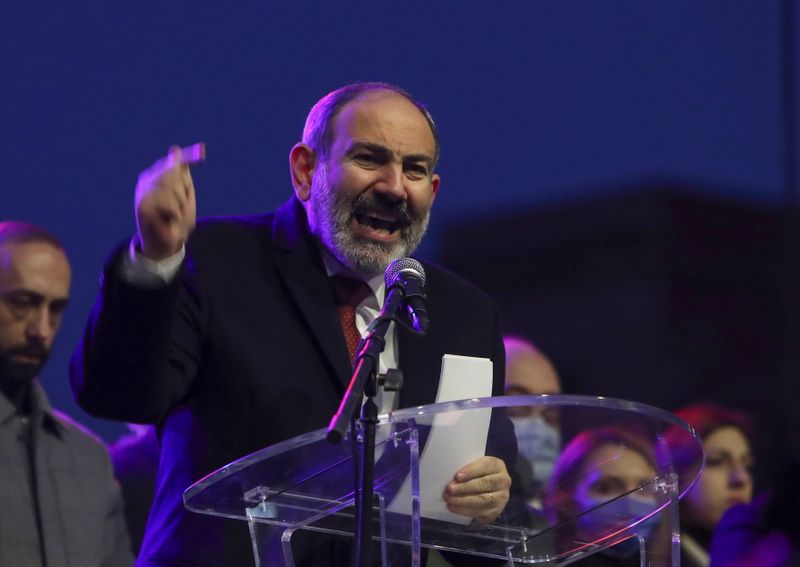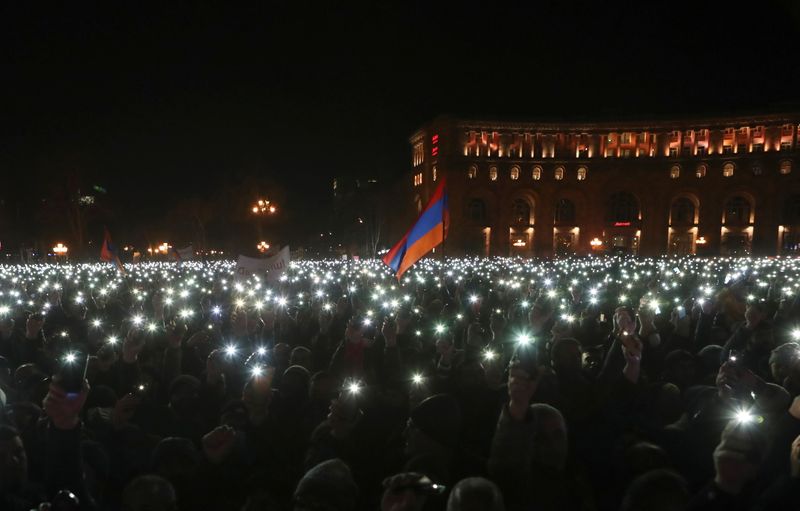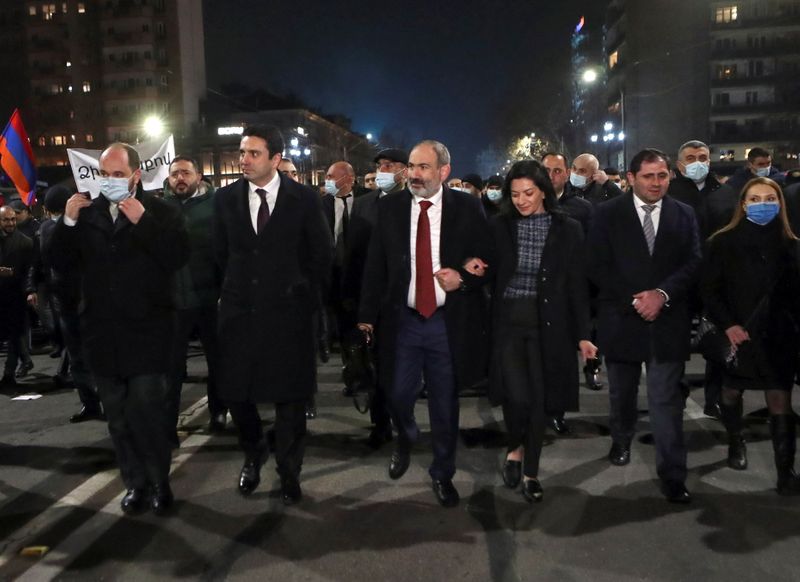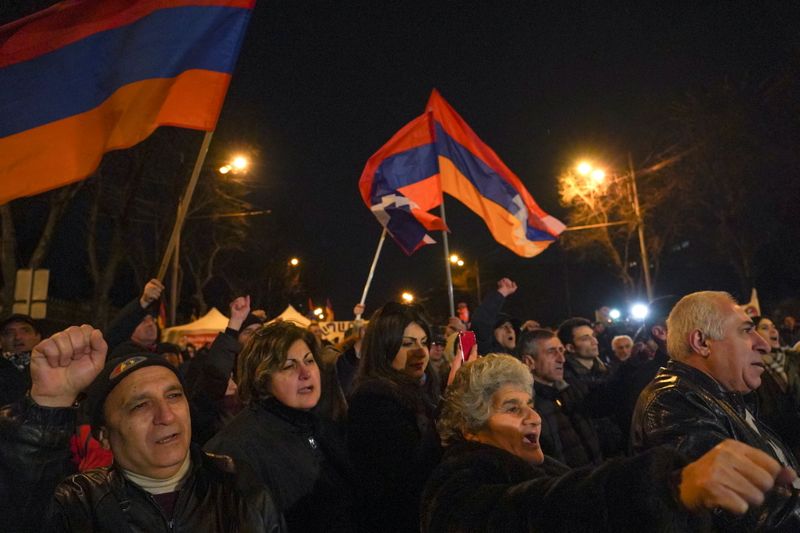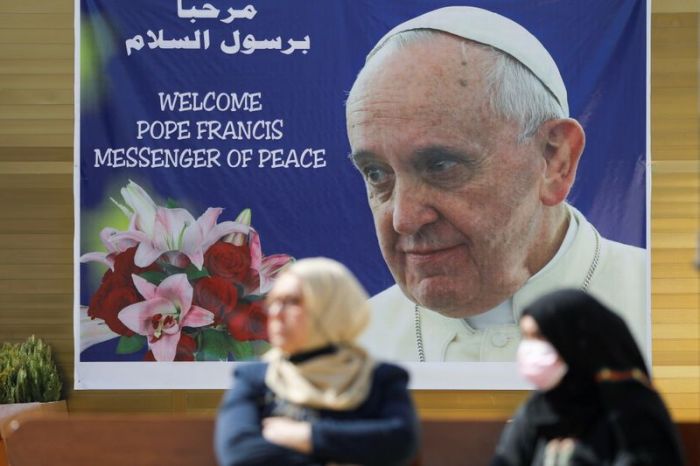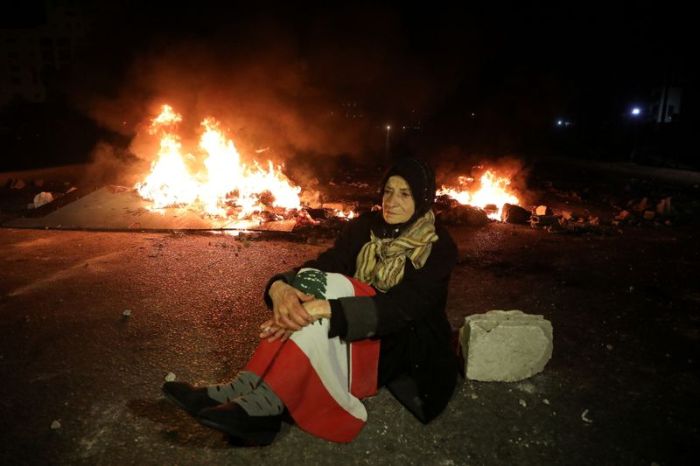YEREVAN (Reuters) – Armenian Prime Minister Nikol Pashinyan said he would be ready to hold snap parliamentary elections if the opposition agreed to certain conditions, as thousands joined rival street rallies in the capital Yerevan on Monday.
Pashinyan, in power since 2018 in the ex-Soviet republic of less than 3 million people, is facing a crisis after the army last week demanded he step down, prompting him to decry a coup attempt and try to sack the army’s top general.
Speaking to thousands of supporters who rallied in the centre, Pashinyan proposed holding a referendum in October to adopt a new constitution and said snap elections were possible under certain conditions.
He has suggested parliamentary factions sign a memorandum promising not to elect someone else as prime minister if he steps down to clear the way for early elections.
“We’ll go to elections and we’ll see whose resignation the people wants,” the Interfax news agency cited him as saying.
Several thousand people gathered at another opposition rally by the parliament building where some waved Armenian flags and chanted “Armenia without Nikol!”
Pashinyan dismissed Chief of General Staff Onik Gasparyan in February, but his sacking needed the formal approval of the president – who rejected the move as unconstitutional and said the army should be kept out of politics.
But Pashinyan has sent back his decree demanding the general’s dismissal to the president’s office.
The country’s Security Council on Monday urged President Armen Sarkissian to approve the sacking of the top army general, the Interfax news agency reported. RIA reported that Pashinyan also met Sarkissian on Monday.
Pashinyan has faced calls to resign since last November when he agreed to a Russian-brokered ceasefire that halted six weeks of fighting between ethnic Armenian and Azeri forces over the region of Nagorno-Karabakh.
His critics accuse him of bungling the conflict in which Azerbaijan made territorial gains in and around Nagorno-Karabakh, an enclave internationally recognised as part of Azerbaijan but populated and until recently fully controlled by ethnic Armenians.
Pashinyan has accepted responsibility for the conflict’s outcome but rejected calls to resign.
(Reporting by Artem Mikryukov, Tom Balmforth, Anton Kolodyazhnyy, Gabrielle Tétrault-Farber and Vladimir Soldatkin; Editing by Catherine Evans, Hugh Lawson and Bernadette Baum)

